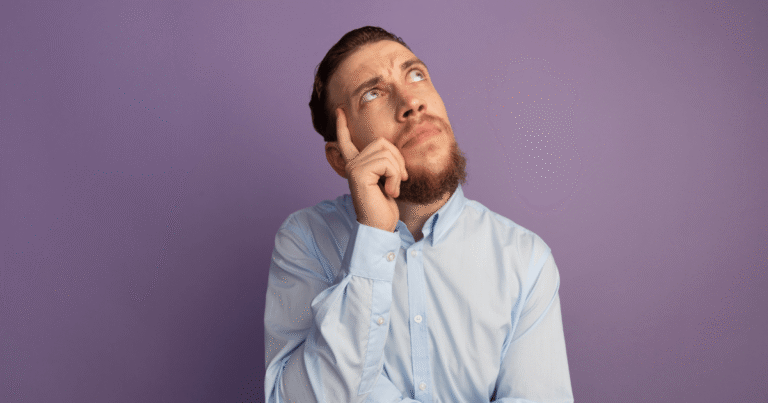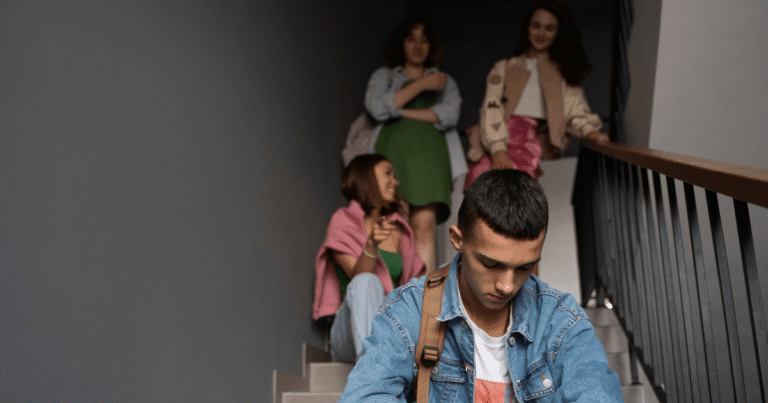The Complete Solution to Social Anxiety: Your Roadmap to Freedom
Meta Title: Social Anxiety Solution: Complete Guide to Overcome Fear 2025 Meta Description: Discover proven solutions for social anxiety including CBT, medication, and self-help strategies. Evidence-based treatments that actually work to overcome social fear.
Why You Need More Than Just Information
When you search for a “solution to social anxiety,” you’re not looking for another list of generic tips. You want a real way out of the prison that fear has built around your social life. The encouraging truth is that effective solutions exist, backed by decades of research and thousands of success stories.
Social anxiety disorder affects millions of people worldwide, but it responds remarkably well to treatment. The key lies in understanding that the solution isn’t a single approach, but rather a comprehensive strategy that addresses both the psychological and physical aspects of your anxiety.
Understanding Your Enemy: How Social Anxiety Works
Before diving into solutions, it’s crucial to understand what you’re dealing with. Social anxiety operates through a predictable cycle that keeps you trapped.
Your brain perceives a social situation as threatening, even when logic tells you it’s safe. This triggers your fight-or-flight response, flooding your system with stress hormones. Your heart races, your palms sweat, and your mind fills with catastrophic predictions about social disaster.
To escape these uncomfortable sensations, you avoid the situation entirely or endure it with intense distress. This avoidance teaches your brain that social situations truly are dangerous, reinforcing the cycle and making future encounters even more frightening.
Breaking this cycle requires targeted interventions that retrain your brain’s response to social situations.
Professional Treatment: The Foundation of Lasting Change
While self-help strategies are valuable, professional treatment provides the structured approach necessary for deep, lasting transformation.
Cognitive Behavioral Therapy: Rewiring Your Social Brain
Cognitive Behavioral Therapy represents the gold standard for treating social anxiety. This approach recognizes that your thoughts, emotions, and behaviors are interconnected, and changing one element can positively impact the others.
The cognitive component teaches you to identify and challenge the distorted thoughts that fuel your anxiety. Common cognitive distortions include mind reading (assuming you know what others think about you), catastrophizing (imagining the worst possible outcomes), and all-or-nothing thinking (believing you must be perfect or you’re a complete failure).
Your therapist will guide you through a process called cognitive restructuring, where you learn to examine the evidence for and against your anxious thoughts. Instead of automatically believing “Everyone thinks I’m weird,” you’ll learn to ask “What evidence do I have for this? Are there alternative explanations?”
The behavioral component involves systematic exposure to feared social situations. This isn’t about throwing yourself into terrifying situations unprepared. Instead, you and your therapist create a hierarchy of social challenges, starting with mildly uncomfortable situations and gradually working toward more challenging ones.
This exposure process serves a dual purpose: it provides evidence that contradicts your catastrophic predictions, and it allows your nervous system to habituate to social situations, reducing the automatic anxiety response over time.
Medication: Chemical Support for Your Recovery
For many people, medication plays a crucial role in social anxiety treatment. It’s not about numbing yourself or changing your personality, but rather reducing the intensity of anxiety symptoms so you can engage more effectively in therapy and social situations.
Selective Serotonin Reuptake Inhibitors are typically the first-line medication choice. These medications work by increasing serotonin availability in your brain, which helps regulate mood and anxiety. Popular options include sertraline, paroxetine, and escitalopram. These medications typically take several weeks to reach full effectiveness and are designed for long-term use.
Beta-blockers offer a different approach, particularly useful for performance anxiety situations like public speaking or presentations. Medications like propranolol block the physical symptoms of anxiety such as rapid heartbeat, trembling, and sweating, without affecting the psychological aspects of anxiety.
Some people benefit from other medication classes, including certain anti-anxiety medications for short-term relief or alternative antidepressants when SSRIs aren’t effective.
The decision to use medication should always be made in consultation with a healthcare provider who can assess your specific situation and monitor your response to treatment.
Self-Help Strategies: Daily Tools for Managing Social Anxiety
Professional treatment provides the framework, but daily self-help strategies give you practical tools to manage anxiety as it arises and prevent it from controlling your life.
Cognitive Strategies: Becoming Your Own Therapist
Learning to challenge anxious thoughts is a skill you can develop and use throughout your life. When you notice anxiety-provoking thoughts arising, pause and examine them critically.
Ask yourself specific questions: Is this thought based on facts or assumptions? What would I tell a friend who had this thought? What’s the worst that could realistically happen, and could I handle that outcome? What’s a more balanced way to think about this situation?
This process becomes more natural with practice. Initially, you might need to write down your thoughts and challenges, but eventually, this mental questioning becomes automatic.
Attention Training: Shifting Your Focus
Social anxiety creates intense self-focus, making you hyperaware of your own behavior, appearance, and performance. This internal spotlight amplifies anxiety and prevents you from engaging naturally with others.
Practice deliberately shifting your attention outward during social interactions. Focus on what others are saying, the details of your environment, or the content of conversations rather than monitoring your own performance.
This shift in attention serves multiple purposes: it reduces self-consciousness, makes you a better conversationalist, and provides evidence that people aren’t scrutinizing you as intensely as you imagine.
Graduated Exposure: Building Confidence Systematically
You can implement your own exposure program by creating a personal hierarchy of social challenges. Start with situations that cause mild anxiety and gradually work toward more challenging scenarios.
Your hierarchy might include making small talk with a cashier, asking for directions, calling a business to ask about their hours, attending a small social gathering, or speaking up in a meeting. The key is starting small and building success upon success.
Each time you complete a challenge, take note of what happened versus what you feared would happen. This concrete evidence helps weaken the power of anxious predictions over time.
Relaxation and Mindfulness: Calming Your Nervous System
Having tools to manage physical anxiety symptoms empowers you to stay present during challenging social situations. Deep breathing techniques, progressive muscle relaxation, and mindfulness practices can all help regulate your nervous system.
Box breathing is particularly effective: inhale for four counts, hold for four counts, exhale for four counts, and pause for four counts. This pattern activates your parasympathetic nervous system, naturally reducing anxiety.
Mindfulness meditation, even just five minutes daily, can help you develop a different relationship with anxious thoughts and sensations, observing them without being overwhelmed by them.
Lifestyle Factors: Creating an Anti-Anxiety Foundation
Your daily habits significantly impact your overall anxiety levels and your ability to implement other treatment strategies effectively.
Regular exercise acts as a natural antidepressant and anxiety reducer. It doesn’t have to be intense; even a daily walk can make a meaningful difference. Exercise helps metabolize stress hormones and releases endorphins that improve mood.
Sleep quality directly affects emotional regulation and anxiety levels. Poor sleep makes you more vulnerable to anxious thoughts and less capable of implementing coping strategies. Prioritize seven to nine hours of quality sleep nightly.
Caffeine can mimic and exacerbate anxiety symptoms, particularly in sensitive individuals. Consider reducing or eliminating caffeine to see if it improves your anxiety levels.
Alcohol might seem to help social anxiety in the short term, but it often increases anxiety levels once it wears off and can interfere with the natural learning process that occurs during exposure to feared situations.
Creating Your Personal Action Plan
The most effective approach combines multiple strategies tailored to your specific situation and preferences. Start by identifying which aspects of social anxiety affect you most significantly, then prioritize interventions accordingly.
If your anxiety is severe or significantly impacting your daily life, professional treatment should be your first step. A mental health professional can help you determine whether therapy, medication, or both would be most beneficial.
Simultaneously, begin implementing self-help strategies that feel manageable. You might start with thought challenging and basic relaxation techniques while gradually adding exposure exercises as your confidence builds.
Remember that recovery from social anxiety is rarely linear. You’ll have good days and challenging days, periods of rapid progress and times when improvement feels slow. This is completely normal and doesn’t indicate that the strategies aren’t working.
Moving Forward: From Fear to Freedom
Social anxiety doesn’t have to define your life or limit your potential. With the right combination of professional support, self-help strategies, and lifestyle changes, you can develop the skills and confidence needed to engage authentically in social situations.
The journey from social anxiety to social freedom requires courage, patience, and consistent effort, but thousands of people have successfully made this transformation. Your willingness to seek solutions demonstrates that you already possess the motivation needed to succeed.
Start where you are, use what you have available, and take the next small step forward. Your future self will thank you for the courage you show today in beginning this journey toward social freedom.







